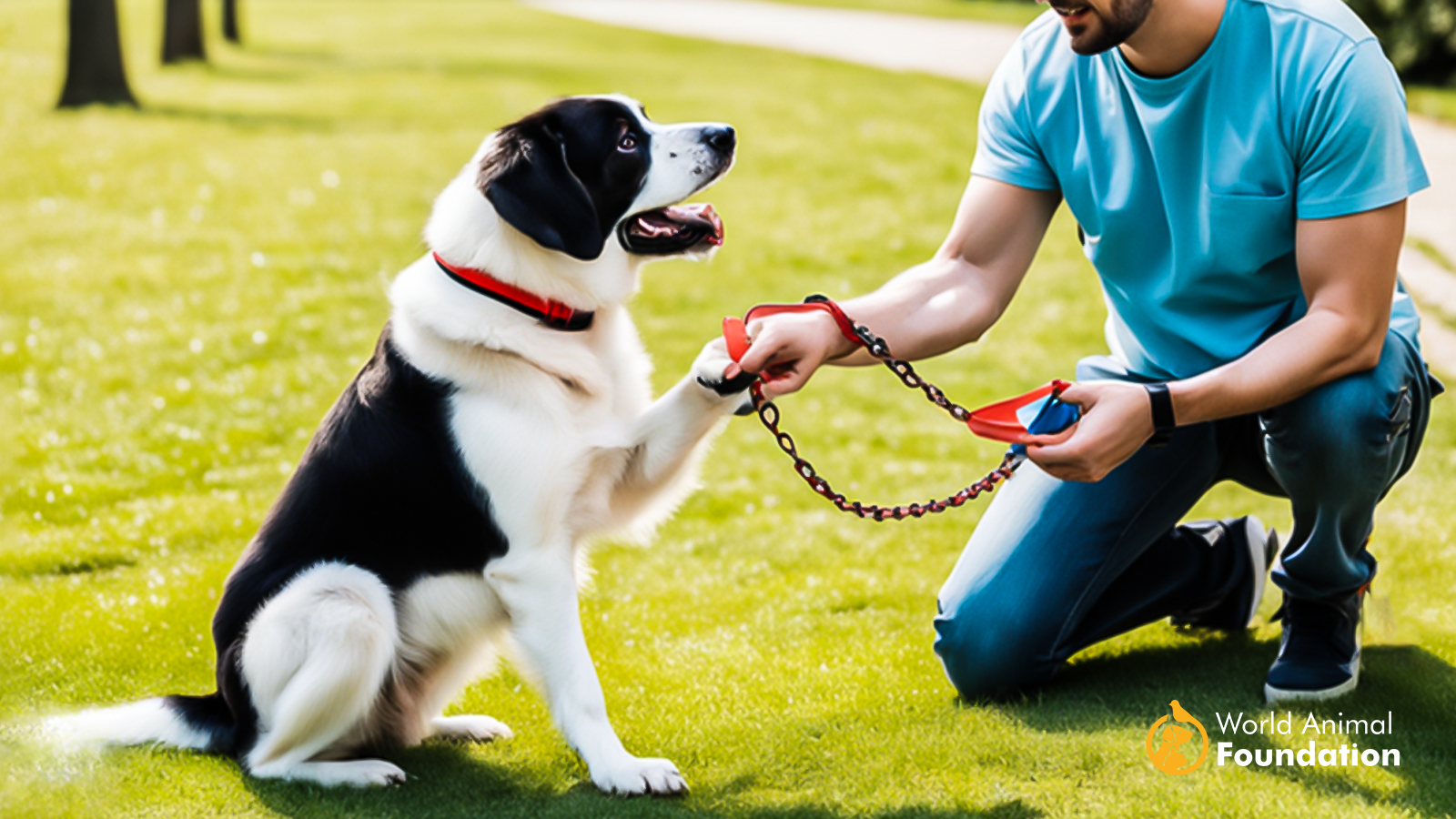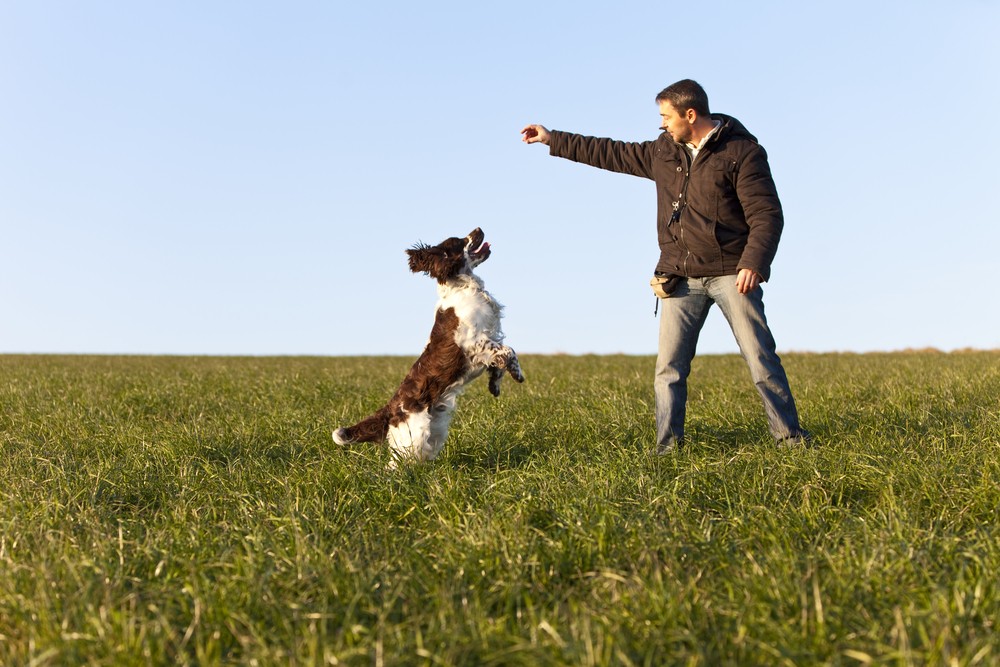Beyond Treats: Training Unmotivated Dogs to Love Learning

Understanding Unmotivated Dogs
Understanding the Psychology of Unmotivated Dogs
You might have noticed that, at times, your furry friend seems a bit unmotivated. Don't worry; this is completely normal! Dogs, just like humans, can have off days when they feel less enthusiastic. It's important to remember that dogs, like us, can also experience a range of emotions that can impact their willingness to learn or engage in activities.
By being patient and understanding, you can help your dog overcome these temporary setbacks. Keep encouraging and supporting your canine companion – their motivation will return.
Identifying Signs of Disinterest in Learning
When your dog seems unmotivated, take note of their body language. Are they avoiding making eye contact, yawning frequently, or showing disinterest in activities they usually enjoy? Remember, these could be signs that your dog is feeling a bit uninspired at the moment.
Don't get disheartened; instead, try to approach training and activities in a different way to reignite their interest. Consider introducing new challenges or rewards to make the learning experience more exciting for your pup. With your positive attitude and patience, you can help your dog rediscover their motivation and eagerness to learn.

Motivation Techniques for Dogs
Using Positive Reinforcement in Training
When working with your unmotivated dog, remember that positive reinforcement is key. Rewarding your pup with treats, praise, or playtime when they display desired behaviours can help boost their motivation and create a positive association with learning. Stay consistent in rewarding good behavior, and celebrate even small victories – this will encourage your dog to continue learning and trying their best.
Introducing Interactive Toys and Games
Another effective way to motivate your dog is by introducing interactive toys and games into your routine. Puzzle toys, treat-dispensing balls, or hide-and-seek games can stimulate your dog mentally and physically, making learning more engaging and enjoyable. Spend quality time playing these games with your furry friend, and watch as their enthusiasm for learning and interacting with you grows. Together, you can make training sessions fun and rewarding for your unmotivated dog.

Implementing Consistent Training Strategies
Establishing a Routine for Training Sessions
When you encounter your unmotivated dog, one effective approach is to establish a consistent routine for training sessions. By setting aside specific times each day for learning activities, you can create a sense of structure and predictability that your pup will appreciate.
Consistency is key in reinforcing positive behaviors and fostering your dog's motivation to engage in training. Stick to a regular schedule, and watch as your dog becomes more eager and responsive during your sessions.
Setting Clear Goals and Expectations
To further motivate your dog, it is important to set clear goals and expectations for your training sessions. Communicate with your pup in a positive and encouraging manner, outlining the behaviors you want them to exhibit.
By providing clear guidelines and expectations, you can help your dog understand what is required of them and foster a sense of accomplishment when they meet your goals. Celebrate their successes, no matter how small, and continue to challenge them to reach new milestones. With clear direction and encouragement, you can empower your unmotivated dog to overcome obstacles and thrive in their training journey.

Patience and Encouragement
Practicing Patience When Training Unmotivated Dogs
When encountering your unmotivated dog, you must approach training with patience and understanding. Remember that your pup may take time to adjust and engage fully in the learning process. Stay calm and positive during your training sessions, providing gentle guidance and support as your dog navigates through new behaviors and commands.
By patiently working through challenges and setbacks, you show your dog that you are there to support them every step of the way.
Encouraging Small Achievements and Progress
As you work with your unmotivated dog, remember to celebrate even the smallest of victories. From responding to a basic command to showing improved focus during training, every achievement is a step in the right direction.
By acknowledging and praising your dog's progress, you build their confidence and motivation to continue learning. Encouragement plays a vital role in shaping your dog's behavior and willingness to participate in training activities. With your positive reinforcement and belief in your pup's abilities, you create a supportive environment that motivates them to excel.

Engaging Training Methods
Incorporating Fun and Engaging Training Activities
When you encounter your unmotivated dog, consider incorporating fun and engaging training activities to make the learning process more enjoyable. You can introduce interactive games, agility exercises, or puzzle toys to keep your dog entertained and interested in training sessions.
By infusing playfulness into your training routine, you create a positive and stimulating environment that motivates your pup to actively participate and learn new behaviors.
Using Treats and Rewards Effectively
Optimistically motivate your unmotivated dog by using treats and rewards effectively during training. You can offer favourite treats as incentives for following commands correctly or displaying desired behaviours. Additionally, verbal praise and physical affection serve as valuable rewards that reinforce your dog's good conduct.
By associating positive outcomes with your dog's actions, you encourage them to repeat those behaviors in anticipation of receiving praise and treats, strengthening your bond and enhancing your training efforts.
Following the Fun Path in Training
Infusing Joy into Learning
As a pet owner, when you encounter your unmotivated furry companion, a great way to spark interest is by incorporating fun and engaging training activities. Introducing interactive games, agility exercises, or puzzle toys can not only keep your dog entertained but also make the training sessions more enjoyable.
By adding a playful element to your training routine, you'll create a positive and stimulating environment that motivates your pup to actively participate and learn new behaviors.
Effective Reward System
Optimistically motivate your unenthusiastic canine by utilizing treats and rewards effectively during training sessions. Offering favorite treats as incentives for following commands correctly or displaying desired behaviors can keep your dog engaged.
Moreover, don't underestimate the power of verbal praise and physical affection as valuable rewards that reinforce good conduct in your dog. By associating positive outcomes with your dog's actions, you encourage them to repeat those behaviors, thus strengthening your bond and enhancing your overall training efforts.
Tailoring Training to Your Dog's Personality
Considering Individual Needs and Preferences
Each dog has its own unique personality, and it's essential to consider your dog's individual needs and preferences when planning training activities. By understanding what motivates and excites your dog, you can tailor the training sessions to cater to their specific likes and dislikes. This personalized approach not only keeps your dog engaged but also fosters a deeper connection between you and your furry friend.
Adapting Training Techniques for Different Breeds
It's crucial to adapt your training techniques based on the breed of your dog. Different breeds have varying temperaments and learning styles, so what works for one breed may not be as effective for another.
Tailoring your training methods to suit the specific characteristics of your dog's breed ensures a more successful and engaging training experience for both you and your beloved pet.

Overcoming Training Challenges
Addressing Common Training Roadblocks
As a responsible pet owner, you understand that training your beloved companion may come with its challenges. If you encounter any common roadblocks during training, such as lack of motivation or behavioral issues, remember to stay patient and persistent.
By identifying the root cause of these challenges and adjusting your training approach accordingly, you can effectively address and overcome them. Remember, every setback is an opportunity to learn and grow closer to your furry friend.
Seeking Professional Help When Necessary
If you find yourself facing persistent training challenges that seem insurmountable, don't hesitate to seek professional help. A qualified trainer or behaviourist can offer valuable insights and guidance tailored to your dog's specific needs. Their expertise and experience can provide a fresh perspective and innovative solutions to overcome any training obstacles you may be facing.
Remember, asking for help is a sign of strength and dedication to providing the best possible training experience for your canine companion.

Building Trust and Bonding
Fostering a Strong Bond Through Training
As a responsible pet owner, it's essential to prioritize building a strong bond and trust with your canine companion through training. By consistently engaging in training sessions with patience, consistency, and positive reinforcement, you not only teach valuable commands but also strengthen the bond between you and your furry friend.
Remember, every successful training session is a stepping stone towards a deeper connection and mutual understanding.
Building Trust and Confidence in Unmotivated Dogs
If you encounter a lack of motivation in your dog during training, view it as an opportunity to build trust and confidence together. Approach each session with enthusiasm, encouragement, and a supportive attitude. Comparing your progress and celebrating small achievements can boost your dog's motivation and help build a positive association with training.
Remember, a patient and optimistic approach will gradually instill confidence in your furry friend, making training sessions enjoyable and rewarding for both of you.

